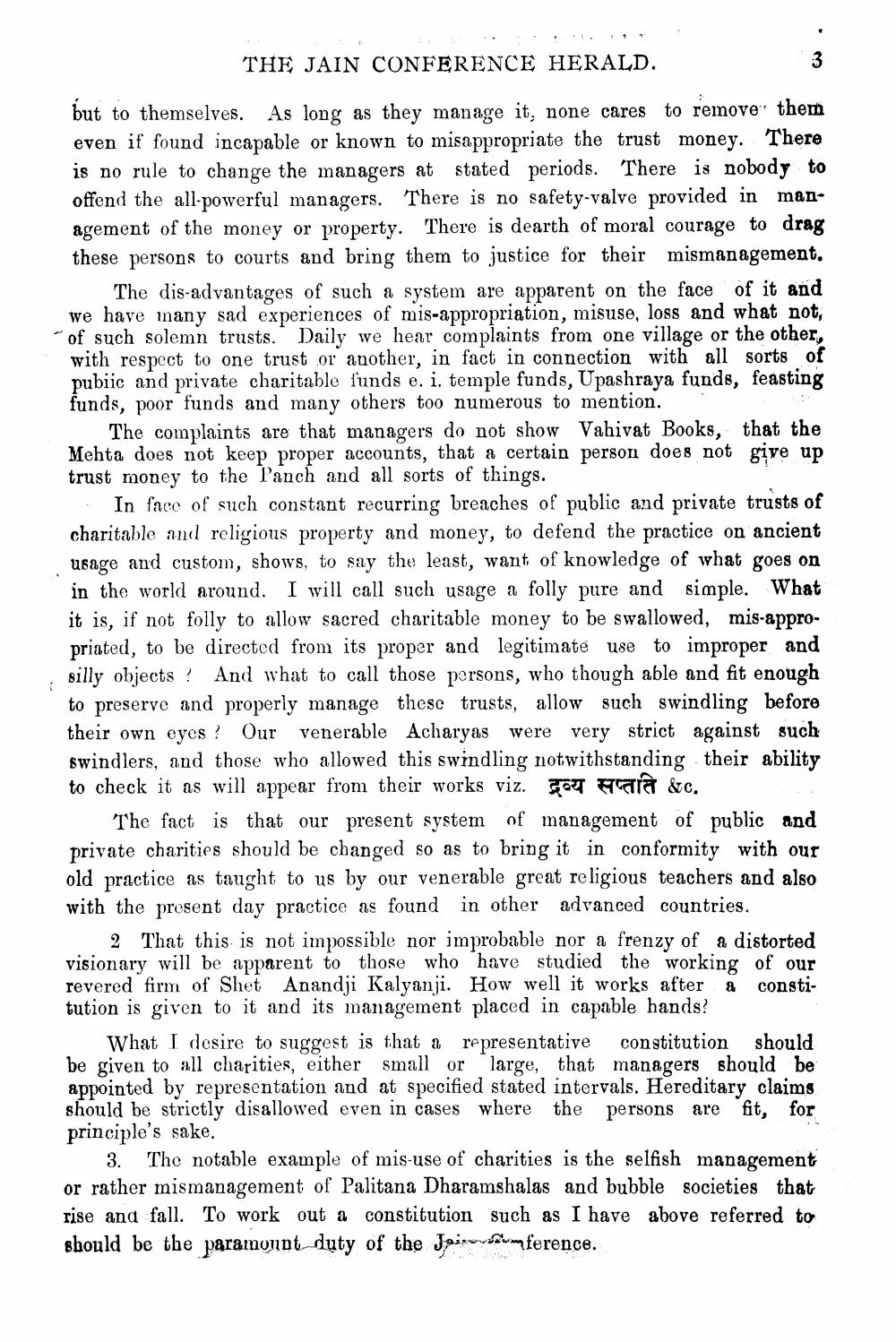________________
THE JAIN CONFERENCE HERALD. but to themselves. As long as they manage it, none cares to remove them even if found incapable or known to misappropriate the trust money. There is no rule to change the managers at stated periods. There is nobody to offend the all-powerful managers. There is no safety-valve provided in management of the money or property. There is dearth of moral courage to drag these persons to courts and bring them to justice for their mismanagement,
The dis-advantages of such a system are apparent on the face of it and we have many sad experiences of mis-appropriation, misuse, loss and what not, of such solemn trusts. Daily we hear complaints from one village or the other, with respect to one trust or another, in fact in connection with all sorts of pubiic and private charitable funds e. i. temple funds, Upashraya funds, feasting funds, poor funds and many others too numerous to mention. .
The complaints are that managers do not show Vahivat Books, that the Mehta does not keep proper accounts, that a certain person does not give up trust money to the Panch and all sorts of things.
In face of such constant recurring breaches of public and private trusts of charitable and religious property and money, to defend the practice on ancient usage and custom, shows, to say the least, want of knowledge of what goes on in the world around. I will call such usage a folly pure and simple. What it is, if not folly to allow sacred charitable money to be swallowed, mis-appropriated, to be directed from its proper and legitimate use to improper and silly objects! And what to call those persons, who though able and fit enough to preserve and properly manage these trusts, allow such swindling before their own eyes ? Our venerable Acharyas were very strict against such swindlers, and those who allowed this swindling notwithstanding their ability to check it as will appear from their works viz. Jo Harat &c.
The fact is that our present system of management of public and private charities should be changed so as to bring it in conformity with our old practice as taught to us by our venerable great religious teachers and also with the present day practice as found in other advanced countries.
2 That this is not impossible nor improbable nor a frenzy of a distorted visionary will be apparent to those who have studied the working of our revered firm of Shet Anandji Kalyanji. How well it works after a constitution is given to it and its management placed in capable hands?
What I desire to suggest is that a representative constitution should be given to all charities, either small or large, that managers should be appointed by representation and at specified stated intervals. Hereditary claims should be strictly disallowed even in cases where the persons are fit, for principle's sake.
3. The notable example of mis-use of charities is the selfish management or rather mismanagement of Palitana Dharamshalas and bubble societies that rise and fall. To work out a constitution such as I have above referred to should be the paramount duty of the Jaiswamference.




